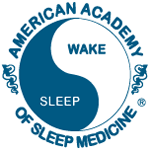Are African-Americans sleepier than whites?
Both a 2003 study and a 2006 study reported that African-Americans have higher scores than whites on the Epworth Sleepiness Scale. The ESS measures how likely you are to fall asleep in eight common situations.
Why might African-Americans score higher on the ESS? It could be that they are more sleep deprived than whites; or perhaps they are more likely to suffer from sleep-disrupting disorders such as obstructive sleep apnea.
Or maybe there is another explanation. A study in the Aug. 15 issue of the Journal of Clinical Sleep Medicine investigated.
The study analyzed the ESS scores of 687 patients who were referred to a hospital-based sleep clinic; 52 percent were African-American. The results were validated in a second group of 712 adults; 57 percent of these people were African-American.
Results show that in both groups, African-Americans had higher average ESS scores than whites. Statistical adjustments were made for factors such as sleep duration, body mass index and sleep apnea severity; they had little effect on the difference.
Further analysis showed that the difference in scores may be explained by two of the ESS questions: African-Americans in both groups were more likely than whites to report excessive sleepiness on questions six and seven.
Question six of the ESS asks how likely you are to fall asleep while “sitting and talking to someone.” Question seven measures sleepiness while “sitting quietly after lunch without alcohol.”
The authors suggest that the ESS is not measuring sleepiness consistently between African-Americans and whites. If one group really were sleepier than another, then their scores should be higher on all eight questions.
So what is it that causes the difference in scores for these two questions? The authors are unsure.
They speculate that there may be cultural differences in how the wording is interpreted. Or different life experiences may cause responses to differ. They cite a 2002 study, which found that culture can affect response patterns.
The ESS was developed in Australia and published in the journal Sleep in 1991. Since then it has been translated into other languages such as Spanish, Chinese, Greek and Turkish. But the authors report that it has never been validated in an African-American population.
So does an ethnic difference in daytime sleepiness really exist? It remains unclear. But the authors conclude that studies using an objective measure such as the multiple sleep latency test could shed light on the answer.
Sunday, August 23, 2009
Subscribe to:
Post Comments (Atom)







No comments:
Post a Comment